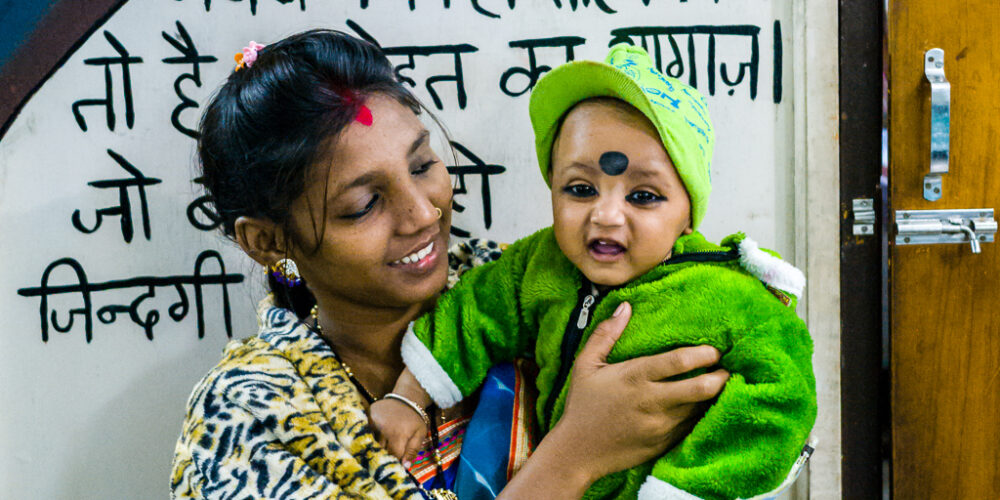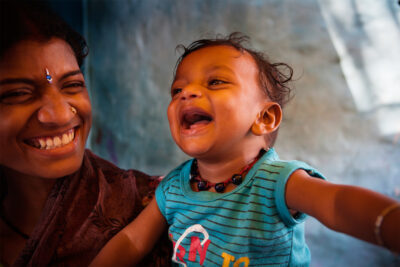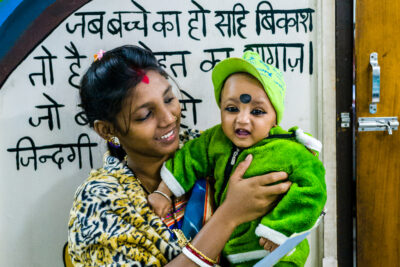
Beating the Odds: A Story of Growth
Thank you so much for your continued support and partnership — especially with the challenges of the COVID-19 pandemic. Fortunately, in early 2022, Calcutta Kids was able to resume all of its in-person operations. The pandemic has strengthened us as an organization and brought us even closer to the Fakir Bagan community, while providing us with an opportunity to look attentively at its impact. Let us share with you, in this year’s annual appeal, some of what we’ve learned.
 Among the achievements of Calcutta Kids, one that has been most significant has been the reduction in the percentage of children suffering from severe malnutrition in our catchment area from 12.3% of children in 2009 to 3.3% in 2013 — a reduction of 73%i. Just as significant, that low rate of severe malnutrition has not increased over the past dozen years.
Among the achievements of Calcutta Kids, one that has been most significant has been the reduction in the percentage of children suffering from severe malnutrition in our catchment area from 12.3% of children in 2009 to 3.3% in 2013 — a reduction of 73%i. Just as significant, that low rate of severe malnutrition has not increased over the past dozen years.
Our team’s careful analysis of the data we collectii indicates that a vital contributing factor has been the monthly Growth Monitoring and Promotion (GMP) program. Our system assures that any child failing to gain adequate weight from one month to the next receives intensive and highly individualized health, nutritional, and behavioral attention. Thus, GMP serves as both a measurement tool to assess the impact of our program and a critical safety net to protect our most vulnerable children.
During the peak of the COVID-19 pandemic, Calcutta Kids had to transition most of our in-person interactions to virtual ones with the exception of immunizations — for which we employed rigorous COVID-19 protocols. With the monthly in-person growth monitoringiii paused out of necessity, we were deeply concerned about potential increases in severe child malnutrition — this on top of the direct effects of the pandemic.
To our surprise and great delight, we found, upon resumption of the growth monitoring, only a minimal increase in overall child malnutrition rates and no increase in the rate of severe malnutrition. In discussions together with the community health workers and members of the community, we tried to understand how this was possible. The following insights emerged:
- Community members retained — and utilized during the crisis — the intensive growth-promoting information which has been offered to families over the last 17 years;
- Relatedly, beneficiary families with an older child who had already benefited from Calcutta Kids interventions were well-versed in the “promotion” aspect — the key growth promoting messages — of GMP;
- Families and the community implemented improved hygiene practices during the pandemic, resulting in less diarrheal disease — a major contributor to malnutrition;
- The children were consuming healthier home-cooked meals, because there was less money in the household during the lockdown to buy junk food from local markets;
- During the lockdown, there was increased family support; mothers were not alone at home with the children;
- Throughout the pandemic, the Calcutta Kids health workers tirelessly maintained virtual contact with families — and were often the first point of contact for these families when any health-related crisis arose. This had the effect of further deepening the trust between beneficiaries and health workers. Through such virtual communication meaningful “growth promotion” was able to take place even when “growth monitoring” could not.
 There is, in sum, much to be grateful for and hopeful about. Given our data driven approach, we will spend the coming year digging still deeper to understand more about the “why” behind this success. We will use community participation and both qualitative and quantitative methods to further examine this question and then make necessary programmatic changes to maintain and increase the effectiveness and efficiency of our efforts in Fakir Bagan.
There is, in sum, much to be grateful for and hopeful about. Given our data driven approach, we will spend the coming year digging still deeper to understand more about the “why” behind this success. We will use community participation and both qualitative and quantitative methods to further examine this question and then make necessary programmatic changes to maintain and increase the effectiveness and efficiency of our efforts in Fakir Bagan.
In these efforts and with everything else Calcutta Kids is doing, your support is what makes it possible. We at Calcutta Kids — along with the 725 families with which we work — are so grateful for your generosity and your shared commitment to uplifting the women, children and adolescent girls in Fakir Bagan. Please continue to give generously to support our important work in 2023 and beyond.
With warmest holiday wishes and many thanks,
Noah Levinson & Evangeline Ambat
Co-Directors, Calcutta Kids
[i] Read about our impact: https://www.calcuttakids.org/
[ii] Learn more about our digital health platform and our approach to data based decision making: https://www.calcuttakids.org/
[iii] Learn about our child health interventions here: https://www.calcuttakids.org/




